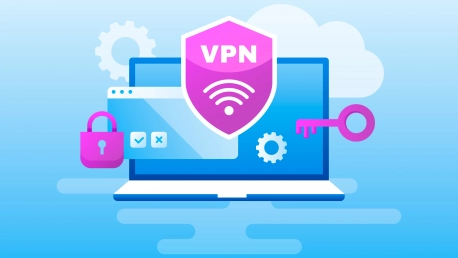In an era where digital footprints are traced with increasing precision, the quest for online privacy and security has never been more pressing. Users are turning to Virtual Private Networks (VPNs) to shield their internet activities from vigilant eyes—ranging from ISPs to potential nefarious snoopers. Yet, trust is the currency of the digital realm, and not all VPNs are created equal. Recognizing the gravity of trust, “Navigating the Trustworthiness of VPNs Through Audits” underscores the vital role of third-party audits in evaluating VPN providers. These audits are not just routine checkups; they are essential for substantiating the claims of VPN services that prioritize user privacy.
The Core Principle of VPNs: Privacy and Encryption
At its core, a VPN serves as a bastion of privacy for digital wanderers. A premier VPN will not only ensure that your internet traffic is a labyrinth for unwanted trackers but will also pledge to maintain a no-logs policy, meaning it won’t retain any records about your online sojourns. The ability to navigate the web incognito is precisely the service a VPN is expected to provide—a service predicated on the robust encryption of data.Encryption is the VPN’s sword and shield, protecting users’ data from prying eyes and keeping their details obscured even against the most sophisticated scrutiny. By rerouting traffic through secure servers and obscuring IP addresses, VPNs create a digital fortress for users, shielding their personal information and online activities from unauthorized access.
The Role of Audits in Assessing VPN Reliability
When it comes to gauging the reliability of VPN services, third-party audits stand out as crucial barometers. Privacy audits painstakingly dissect how VPN providers collect, handle, and perhaps disseminate personal information. Security audits, meanwhile, target the robustness of the VPNs’ technological framework, hunting for susceptibilities that could jeopardize user safety.Despite their importance, these audits are not flawless. They capture the status of a VPN’s operations at a moment in time—akin to a photograph in a perpetual motion world. Yet, this snapshot is essential, acting as an initial step in validation. Users should recognize that these findings should serve as part of broader, ongoing quality assessments rather than a permanent certificate of trust.
Challenges and Limitations of VPN Audits
The limitations of VPN audits are most pronounced in their inherent transience. An audit is a temporal probe, offering insights into the state of a VPN at a specific moment, which may not accurately represent its year-long practices. Moreover, not all VPNs undergo regular audits, leaving unanswered questions about the ongoing effectiveness of their privacy protection after the audit’s conclusion.Amid the quest for better privacy and security, an audit’s snapshot nature signals the need for continuous vigilance. The ever-changing landscape of software updates and management strategies can swiftly undercut previously secure systems, suggesting that sporadic checks may not suffice to reliably catch emerging vulnerabilities.
Enhancing Trust Through Transparency and Open Source Practices
An evolved VPN sector is characterized by its commitment to transparency. Progressive providers willingly put their practices under the microscope of independent audits, sharing findings to earn public trust. This democratization of trust seeks to assure users that their VPN of choice holds its guard high not just during audits but throughout its operation.Open-source VPNs embody the pinnacle of this ethos, permitting community access to their source code. This unrelenting visibility allows for perpetual community audit—a contrast to the episodic nature of third-party inspections. The valuable eyes of the public serve as an additional layer of ongoing evaluation, which, coupled with formal audits, provides a more continuous assurance of a VPN’s trustworthiness.
Contributing Factors to a VPN’s Trustworthiness
While audits are indispensable, several additional facets shape the overall trustworthiness of a VPN. The jurisdiction of a VPN’s headquarters could influence its commitment to a no-logs policy, with variations in the stringency of privacy laws across regions. Likewise, technical mechanisms such as kill switches and advanced server architecture are pivotal components in safeguarding privacy.Assessments of a VPN’s reliability must consider its transparency reports and history of legal entanglements. These elements, which supplement the audit’s findings, can enlighten users about a provider’s true stance on user privacy and the depth of their procedural integrity.
Final Takeaways on VPN Audits and Privacy
In today’s digital landscape, where our online presence is minutely analyzed, the importance of maintaining privacy and security cannot be overstated. Individuals are increasingly embracing Virtual Private Networks (VPNs) to obscure their web activities from prying eyes, be they Internet Service Providers or more malicious watchers. However, trust is a paramount commodity in cyberspace, and VPNs are not uniformly dependable. The report titled “Navigating the Trustworthiness of VPNs Through Audits” highlights the importance of third-party audits in assessing the credibility of VPN vendors. These examinations go beyond mere formalities; they are indispensable for verifying the assertions made by VPN companies about their commitment to the privacy of their users. Assessing VPNs through these comprehensive checks offers a clearer assurance to consumers seeking to protect their online interactions in an environment of ever-sophisticated surveillance.









